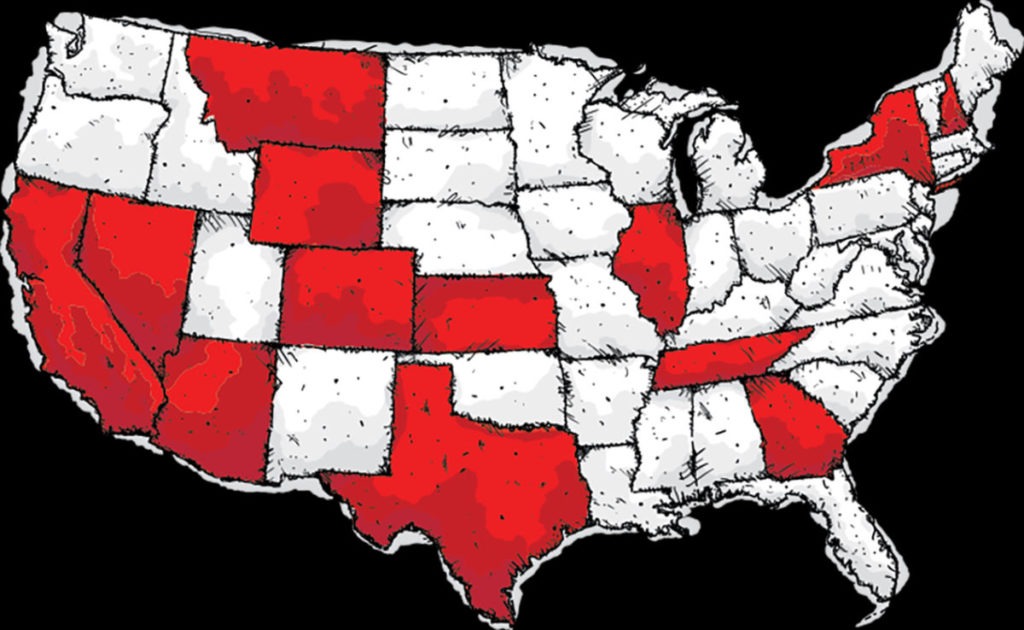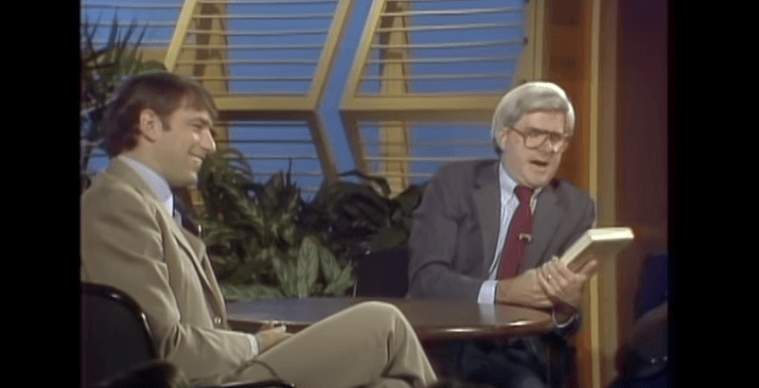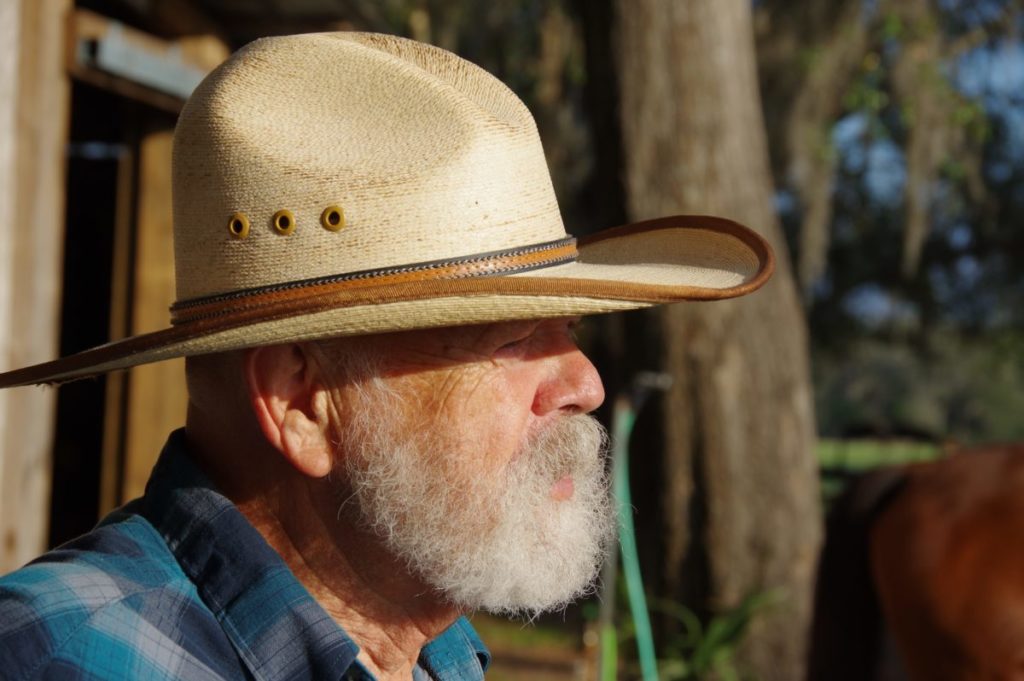
Joel Bowman: Greetings from Texas, Doug. Where in the world do we find you today?
Doug Casey: No place new.
JB: Well, I guess that could be just about anywhere for you…
DC: Oh, there are a few new places I plan on visiting in the not too distant future, including Togo and Niger. One has to fill those idle moments somehow…
JB: I look forward to hearing all about them. As for today, let’s continue our real state of the union conversation. Readers who have been following along know the name of the game here. Basically, we go through the first ten amendments to the constitution – also known as the Bill of Rights – and discuss how present day America measures up against these founding principles of liberty and freedom.
(Ed. Note: If you’re just joining us, you can catch up on the first installments of the discussion, which deal with the four provisions in the First Amendment, here: Freedom of Religion, Freedom of Speech, Freedom of the Press and Freedom of Assembly)
Many International Man readers will be familiar with the wording of the Second Amendment, our topic of discussion for today, but for those who are less sure, or who wish to forward this article to friends for whom the words may not be so easily recollected, let’s go over it again just to be clear. The Second Amendment reads:
“A well regulated militia being necessary to the security of a free state, the right of the people to keep and bear arms shall not be infringed.”
It’s interesting to note that this particular amendment came before the right of the people to be secure in their persons, house and papers; before their right to a speedy and public trial; even before the right to be safe from cruel and unusual punishment. Why do you think this amendment, in particular, was so important to the Founding Fathers?
 US Millionaire says writing on the wall for these states
US Millionaire says writing on the wall for these states
DC: Because historically, starting in ancient times, one of the major differences between a slave and a freeman, was that a freeman had the right to be armed. If you don’t have the right to be armed, if someone can tell you that you can’t defend yourself or your property, then you’re effectively no better than a slave.
What’s at stake here isn’t the interpretation of some legal document. It’s much more important—it’s a basic philosophical principle. It’s a view of what it means to be a free man.
It’s as basic as something can possibly be. If you’re prohibited from having proper arms, you’re really being treated like a slave. And if you accept that others have a right to prohibit you from defending yourself, then you have a slave mentality. If that’s the case, you’re just getting what you deserve. A person who accepts being treated like a slave isn’t worthy of respect.
Going back to the wording of the First Amendment, a lot of the anti-gun people bring up, “A well-regulated militia”. This is interesting, because there are really three kinds of armed forces.
First are militias, citizen soldiers, made up of the people themselves. Militias are voluntary organizations. In the days of the Roman Republic only property owners could join the legions, and it was considered a privilege. A militia-style defense force is the only one truly suited for a free society.
Second is a draftee army, which is really to say a slave army. If a society is so degraded it has to force its citizens to defend it, then it’s already on the slippery slope. Draftees are working for a government.
Last you’ve got a mercenary army, where soldiers are hired. You need mercenaries when there aren’t volunteers, and the average citizen is unsuited, or completely unwilling, to defend his country. Probably because he has no stake in it, or actually dislikes it. When you need mercenaries, you’re in big trouble—on the verge of collapse.
A militia is the best kind of military, because it can’t easily be used for foreign adventures. The American Republic was, in many ways, patterned after the Roman Republic; all freemen were expected to have their own arms, and know how to use them.
So that’s where the idea behind the Second Amendment comes from—that free men have the right to be armed. The fact that most Americans don’t realize this, and is both unwilling and unable to defend himself, is a major sign of how low the country’s ethical tone has become.
JB: It’s interesting that you mentioned the wording, because of course the version of the Second Amendment that went to Congress differs importantly from the version that was ultimately ratified by Thomas Jefferson, who was the Secretary of State at the time (1790-1793).
Jefferson employed a carefully placed comma to separate 1), the need for a well-armed militia and, 2) the right of the people to keep and bear arms. In other words, it wasn’t simply the right of the militia to bear arms, but of the people, too. It’s a very specific distinction that a lot of people miss.
DC: A lot of people miss a lot of things, especially if they don’t want to see or hear them. It underlines the important—no, actually the critical—distinction that has to be made between the government and the people. The government is a distinct entity that has its own life and its own interests. It’s made up of its leaders, employees, and hangers-on. It’s not the people, except in PR pieces intended to encourage jingoism. Government is, at best, a parasite on society.
JB: Indeed. Likewise, people are wont to see and hear things that don’t exist, simply because they want them to. Like mistaking correlation with causation, for example. Or even seeing correlation where it doesn’t exist. Humans are pattern-seeking creatures after all, so this impulse is not surprising. Still, it can lead to gross error in analysis.
In this specific context, it is not at all uncommon for people to view the relatively high rate of gun ownership in the U.S.A. next to the relatively high rate of gun-related homicides and to conclude that one must necessarily follow on from the other (despite the fact that there are dozens upon dozens of examples around the world – and within the differing jurisdictions across the United States itself – which directly contradict that presumption).
DC: That’s exactly right, Joel. The problem isn’t the ownership of weapons in general, and guns in particular. The problem is the character of a country’s people. Is the culture one of individual responsibility, where property rights and the rule of law are respected? The problem is that democracies are like mobs—easily influenced. They prefer a quick fix, laws banning whatever it is they feel they don’t like, so they don’t have to think about the deeper issue at hand.
They hear about a psycho using a gun to kill some innocents? No problem—just ban guns. Nevermind the fact that there’s absolutely no evidence that such a prohibition would even work and plenty to suggest it wouldn’t. That’s another reason for the Second Amendment, and the rest of the Bill of Rights. It’s to keep the mob, the hoi polloi, from acting emotionally and irrationally. That’s the big problem with democracy.
JB: As it happens, prohibition doesn’t have such a hot track record in the United States. Not that that should come as a surprise. I think it was Plato who said, “Good men don’t need laws and bad men won’t follow them anyway…”
DC: Which is another argument for everyone being armed. It’s actually very true that when guns are outlawed, only outlaws will have guns. If you mention that to an anti-gun person, you won’t get a reasoned response. They’ll try to divert the question. My view is that anti-gun people suffer from poor ethics and have a severe psychological aberration.
 Get a FREE copy of Doug’s New Book
Get a FREE copy of Doug’s New Book
JB: So what is it about the “character of a country’s people,” then, specifically in the United States?
DC: It’s changing, and drastically. I’ll give you an example. When I was growing up in the U.S. in the 1950s and ’60s, all of my friends had guns, and we used to regularly grab our guns, walk out into the woods, and go shooting. Guns were accepted by society.
I well remember when I was 16, a sophomore in high school, and I flew from Chicago to Washington DC, I took my pistol, a .22 caliber Colt Woodsman, my .22 rifle, and a shotgun– all three with me– on the plane. I simply put them in the overhead compartment. Nobody thought twice about a kid carrying guns on the plane. Neither did I!
Since then the whole character of the country has changed. Hysteria reigns today. In schools, if a boy even so much draws a picture of a gun, he can be sent to the principal or maybe even sent home. Guns aren’t the problem; it’s the character of the people. There weren’t any school shootings then. Perhaps it’s because so many people are on and off various psychiatric drugs that’s the real problem.
JB: I honestly can’t imagine anyone being permitted to carry so much as a safety razor on a plane today, especially one traveling toward the U.S. Capitol. People freak out over taking a bottle of water on board. In fact, I just flew from Sydney to Houston and the entire plane had to go through a whole additional level of security screening before we even boarded the plane…in Australia. Of course, people readily submit to these degrading processes because they think it makes them safer…
DC: Or because they don’t think at all. I fear the average person has become a whipped dog, who does as he’s told, and will roll over on his back and wet himself if someone wearing a costume looks at him crosswise.
JB: Precisely. It’s easier to point to an inanimate object and project all one’s fear and blame onto it instead of trying to figure out why people – that is, individuals with agency – might be motivated to commit something as horrendous as a mass shooting in the first place.
DC: Again, gun violence in America is a cultural problem, not a political one. Quite frankly, if you want kill a bunch of people, a gun is just one of many tools you could use to do it. An edged weapon is actually just as deadly in certain circumstances. Somebody walks into a theater carrying a machete, the equivalent of a rifle, and a knife, the equivalent of a pistol, I suspect in those close quarters, you could kill just about as many people with an edged weapon, as you can with a firearm.
So what are you going to do? Ban all cooking utensils? But I suspect if politicians suggested such an absurd measure, half the population at least would cheer. In these politically correct times, where you have to be careful about trigger words and safe spaces, the State is likely to ramp up its war against people being able to defend themselves.
The real problem is that if you treat people like children, they tend to act like children. If you expect irresponsible behavior, people won’t act responsibly. Part of being an adult is you should expect the government to treat you like an adult. Everything is going in the wrong direction, as far as this is concerned.
JB: Well, let’s leave it on that cheery note for now. There’s still plenty on the subject to discuss, so let’s return to the Second Amendment when we talk next week.
DC: Sounds good, Joel. Enjoy your time in Texas, still an open carry state, last I checked.
JB: I get the feeling the locals wouldn’t have it any other way.
DC: Yes, just as it should be.
